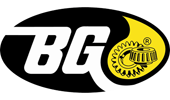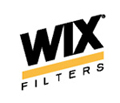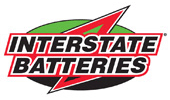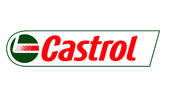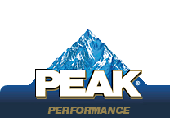AUTONET TV
Archive for June 2025Timing is Everything (Timing Belt)Posted June 29, 2025 3:37 AMTalk about exquisite choreography; it happens under the hood of your vehicle every time you take a drive. Your engine’s many complex parts must work exactly together. One key is a part called a timing belt, which enables the synchronizing of two of your engine’s components, the camshaft, and the crankshaft. The timing belt coordinates the valves in your engine to open and close at the appropriate time to get exhaust out of the engine’s cylinders. Timing belts may also power the water pump and the oil pump. The belt is made of rubber. Some engines use a timing chain (made of metal). Your vehicle’s manufacturer recommends an interval after which you should have your timing belt or chain replaced, and that service should be part of your vehicle’s regular maintenance. It’s always better to replace it before it breaks rather than after. After all, if your timing belt breaks while you’re driving down the road, it throws off the whole sync of engine parts and can cause major damage to the type of engines most commonly used in vehicles today. It's also important to remember that a timing belt is made of rubber, and rubber deteriorates with time, no matter how much use it gets. Have us look at your timing belt to see if it’s time to get it replaced. Here are some signs to look for that will let you know if your timing belt is failing. You might have trouble starting your vehicle, it may misfire or black smoke may come out the tailpipe. If you notice any of those symptoms, bring your vehicle in and have us take a look right away. When it comes to your engine, timing is everything. McLearen Shell More than Pads and Rotors (Brake Caliper Replacement)Posted June 22, 2025 3:53 AMYou might be familiar with brake pads and rotors, two components of your vehicle's brakes that have to be regularly serviced. Here's another important component of your brakes: the calipers. Calipers are used in disc brakes, the type of brakes now found in most recently manufactured vehicles. A caliper is the part of the brakes that squeezes the brake pads against the discs, or rotors, which turn with your wheels. There are different kinds of calipers, but the basic principle is the same. You press down the pedal, brake fluid activates a piston or pistons that squeeze the brake pads against the disc and the friction slows down your vehicle. While modern vehicles have a warning system to let you know it's time to get your brakes checked, your brake light usually goes on when your fluid level is low or your fluid pressure is low. But you may have to look out for signals your calipers are the problem. If your vehicle pulls to one side when you brake, that could be a sign that one caliper isn't working right. If you smell a burning odor coming from a wheel after a trip, there might be too much pressure from a caliper. Grinding or squealing when you brake is another signal that it may be time to bring in your vehicle so we can check your brakes. One way to minimize brake issues is regular inspection. Have them periodically looked at when you bring in your vehicle for an oil change. The good news is brake issues are more likely to be caused by pads or rotors wearing out. Calipers last a lot longer, but even they will need replacing every so often. McLearen Shell An Oil for All Seasons (Engine Oil Selection)Posted June 15, 2025 3:59 AMYou swap your winter boots for flip-flops in the summer. Why not change your winter engine oil for summer, hot-weather oil? While it may seem like it makes sense, there's some good news. Most drivers don't have to, and here's why. Engine oil can be made in different thicknesses. That thickness is called viscosity, how easily it flows. Now, it makes sense that the hotter it gets, oil gets a little thinner and doesn't lubricate as well. So if you used a thicker oil in the summer, it's logical that it would protect better in the hotter weather. While there was a time when oils could be only made in one viscosity, times have changed. Using an ingenious formula, oil can now be created that changes its viscosity (called "multi-viscosity") as the temperature rises and falls. It self-adjusts to match the conditions. Now that's what I call a great invention. In most temperate climates, you don't have to swap out the type of oil you use in your vehicle each season. There are exceptions in extreme climates, but your service advisor can advise you on that. Your vehicle's owner's manual recommends the proper viscosity oil to use. Remember that even though you may not have to switch to a different type of oil, you DO have to CHANGE the oil at certain intervals. That's because oil eventually breaks down and picks up contaminants, and if you have old, dirty oil in your engine, it can cause damaging friction and heat. Regular maintenance at your vehicle service facility will ensure that your vehicle is running like a well-oiled machine. McLearen Shell All Lined Up (Alignment Inspection)Posted June 8, 2025 5:02 AMWhen you head down a straight road, does your vehicle pull to one side? Do you feel vibration in any of the wheels? If you've noticed any of these things, it's probably time for you to get your wheel alignment checked. When your vehicle left the factory, its wheels were parallel to each other and perpendicular to the ground. That maximizes traction for good steering and braking. Every time you take your vehicle on the road, normal wear and tear will affect your alignment. Hit a bump, a pothole or a curb and all those little knocks will add up Bad alignment not only can cause your steering wheel to pull unevenly, it can also wear your tires out a lot faster than they should. In fact, if you look at your tires and see one side of the tread is a lot smoother than the other, it could be another sign of bad alignment. Since different problems can cause similar symptoms, the first thing our trained technician will do is test drive your vehicle. Then, they'll check the front end and steering linkage as well as look for tire wear. Then, the technician will put your vehicle on a lift and use computerized diagnostic equipment to measure alignment angles so they can precisely align your vehicle's components. There are different kinds of alignments. One is a front-end alignment that aligns components of the vehicle's front axle. Another is a thrust alignment that makes sure the front wheels are lined up with the direction the rear wheels are pointed. A third type is four-wheel alignment which is usually used on all-wheel drive and 4-wheel drive vehicles. It's also recommended for front-wheel drive vehicles that have independent rear suspensions. It makes sure the angles of all the wheels are where they should be relative to each other and also the vehicle's body or frame. Your steering wheel should be perfectly centered if you are heading straight down the road, so the technician will adjust it so it is. Finally, they'll take your vehicle back on the road for a final test drive to make sure it's performing the way engineers intended. Your service adviser can recommend how often you should have your alignment inspection, since it depends on the type of vehicle you drive (SUV, sporty car, etc.) and your driving environment. Properly aligned wheels can help your vehicle perform better and save you from expensive repairs down the road. McLearen Shell Your Vehicle's Hissy Fit (AC System)Posted June 1, 2025 4:47 AMWhen you hear hissing sounds coming from your vehicle, you might start thinking the worst. One type of hissing coming from around your air conditioner may be a normal sound, or it could be a sign of serious trouble. First - the normal sound. When you turn off your vehicle, the refrigerant goes from its high-pressure side to the low-pressure side. Some of those noises are normal. But when it hisses all the time, that's another story. One cause could be that the refrigerant is leaking. Air conditioners are fairly complex systems that involve various pumps, hoses, valves and motors. When your air conditioner is cooling, the refrigerant changes from a gas to a liquid and back. That refrigerant is under pressure, and there are many places it can leak from. A hissing sound can also be a failed valve in your air conditioner's compressor. It is what controls the refrigerant's pressurization. It's important to have this fixed fairly quickly after it develops a problem because when it isn't, that can lead to more extensive—and expensive—repairs. If you hear screeching coming from your air conditioner at the same time you hear hissing, your compressor may be on its last legs. It could also be a defective clutch. Any time you hear a noise you haven't routinely heard before, bring your vehicle to us so a technician can check the various components and properly repair the problems. Air conditioning systems are complex and are best handled by a professional with the right tools and equipment. When your AC has a hissy fit, let us cool it off and you at the same time. McLearen Shell | ||
SearchArchiveMay 2016 (16)June 2016 (4) July 2016 (5) August 2016 (4) September 2016 (4) October 2016 (5) November 2016 (4) December 2016 (4) January 2017 (5) February 2017 (4) March 2017 (4) April 2017 (4) May 2017 (5) June 2017 (4) July 2017 (5) August 2017 (3) September 2017 (3) October 2017 (4) November 2017 (5) December 2017 (3) January 2018 (5) February 2018 (3) March 2018 (4) April 2018 (5) May 2018 (4) June 2018 (4) July 2018 (5) August 2018 (4) September 2018 (5) October 2018 (4) November 2018 (4) December 2018 (5) January 2019 (5) February 2019 (4) March 2019 (5) April 2019 (4) May 2019 (4) June 2019 (5) July 2019 (4) August 2019 (4) September 2019 (5) October 2019 (4) November 2019 (4) December 2019 (5) January 2020 (5) February 2020 (4) March 2020 (5) April 2020 (4) May 2020 (5) June 2020 (4) July 2020 (4) August 2020 (5) September 2020 (4) October 2020 (4) November 2020 (5) December 2020 (4) January 2021 (6) February 2021 (4) March 2021 (4) April 2021 (4) May 2021 (5) June 2021 (4) July 2021 (4) August 2021 (5) September 2021 (4) October 2021 (5) November 2021 (3) December 2021 (4) January 2022 (6) February 2022 (4) March 2022 (4) April 2022 (4) May 2022 (5) June 2022 (4) July 2022 (5) August 2022 (4) September 2022 (4) October 2022 (5) November 2022 (4) December 2022 (4) January 2023 (5) February 2023 (4) March 2023 (4) April 2023 (5) May 2023 (4) June 2023 (4) July 2023 (5) August 2023 (4) September 2023 (4) October 2023 (5) November 2023 (4) December 2023 (5) January 2024 (5) February 2024 (4) March 2024 (5) April 2024 (4) May 2024 (4) June 2024 (5) July 2024 (4) August 2024 (4) September 2024 (5) October 2024 (4) November 2024 (4) December 2024 (5) January 2025 (4) February 2025 (4) March 2025 (5) April 2025 (4) May 2025 (4) June 2025 (5) July 2025 (4) August 2025 (5) September 2025 (4) October 2025 (4) November 2025 (5) December 2025 (4) January 2026 (4) February 2026 (4) March 2026 (1) | CategoriesFuel Economy (7)Alternator (5)Service Standards (3)Headlamps (4)Maintenance (9)Transmission (5)Battery Replacement (1)Timing Belt (4)Fluids (6)Battery (11)Alignment (8)Steering (8)Keys to a long lasting vehicle (2)What Customers Should Know (70)Auto Safety (5)Air Conditioning (9)Brakes (12)Exhaust (8)Fuel System (6)Customer Detective Work (1)Fuel Saving Tip: Slow Down (2)Cooling System (8)Safety (2)Safe Driving (1)Drive Train (4)Tires and Wheels (4)Dashboard (1)Tire Rotation and Balancing (3)Oil Change (7)Service Intervals (1)Suspension (2)Shocks & Struts (4)Check Engine Light (3)Fuel Pump (1)Tires (7)Trip Inspection (1)Automotive News (1)Brake Service (5)Spark Plugs (2)Winter Prep (2)Windshield Wipers (2)TPMS (1)Inspection (2)Shocks and Struts (2)Fuel Filter (1)Water Pump (1)Differential Service (2)Wheel Bearings (1)PCV Valve (2)Engine Air Filter (2) | |
Reviews
|
Excellent work. Josh always does all the maintenance for my Porsche, VW Taureg, and Subi Outback. I can always count on him doing what is needed and never trying to upcharge me for work that is not needed. Jack, 11/30/2021 |
Took our Acura RDX in for brake service today. The staff at McLearen Shell did an excellent job, replacing the front discs & rotors. They advised that the rear pads still had 50% material remaining. Have had a variety of automobiles serviced at this service station over the last 25 years and there service remains outstanding and very reasonably priced. Highly recommended. Rob Saunders, 04/21/2022 |
Great team at McLearen Shell, have regularly changed out brakes, bulbs, oil, valve cover gasket, spark plugs, etc. on a 1998 Gen 4 Camry LE for the past three years. Trustworthy, professional and they know these older still-running vehicles. Always respectful to Ladies interested in vehicle mechanical function and maintenance as well Margaret, 06/16/2021 |








